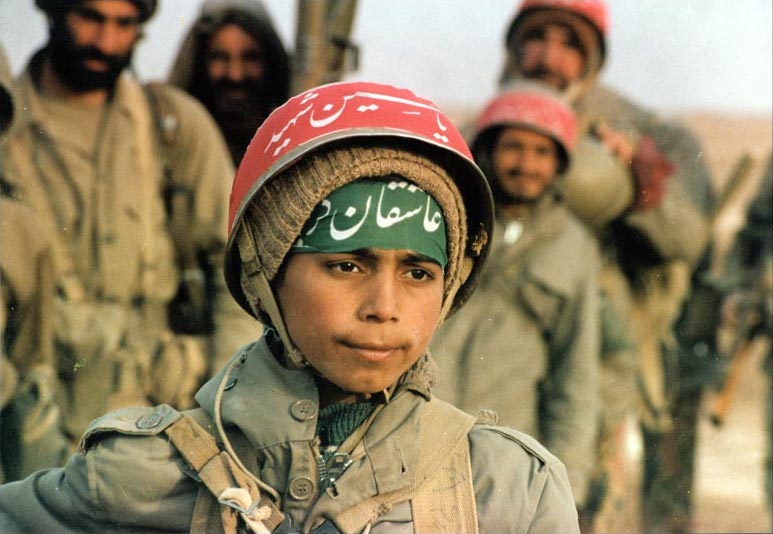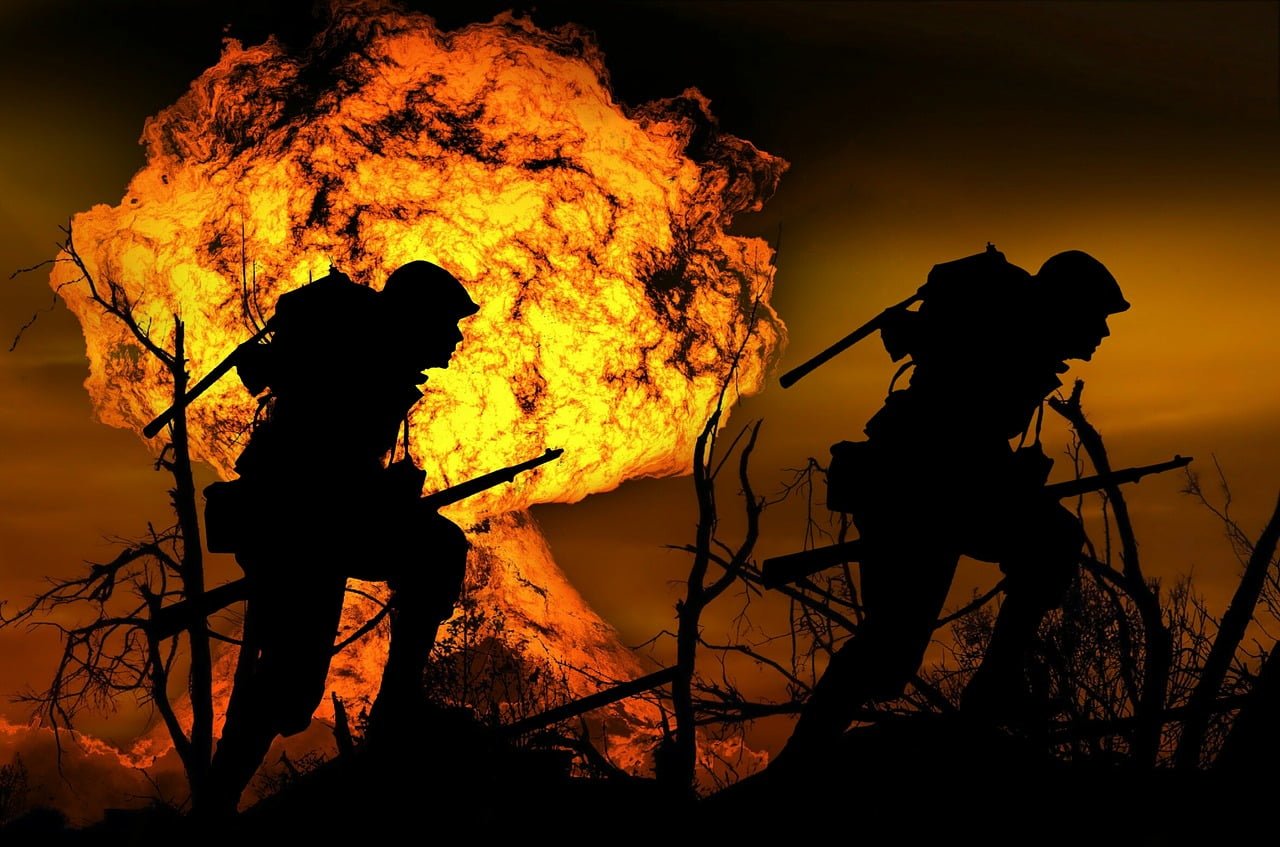Jan 14, 2020 Update: It seems fears about World War 3 are starting to decline after U.S. President Trump and Iranian officials both expressed a plan for de-escalation of tensions.
Tehran promised retaliation in response to the U.S. airstrike that killed General Qassem Soleimani last week. Now it seems Iran’s strikes on a bases housing U.S. troops in Iraq has sated Iranian officials’ thirst for revenge even though there were no casualties. They said they had “concluded” their response to his death.
Iranian Foreign Minister Javad Zarif tweeted after the strikes on the bases, “We do not seek escalation of war, but will defend ourselves against any aggression.”
When President Trump announced that no U.S. troops were hurt in Iran’s attack on the bases, he also said, “Iran appears to be standing down.”
He also reminded Iran that the U.S. military is strong, adding that even though the U.S. has a strong military, it “does not mean we have to use it.”
The comments from both sides make it appear that the threat of World War 3 has abated, at least for now. However, Trump did say the crippling U.S. sanctions would remain in place until Iran “changed its behavior.” He called again for Tehran to “abandon its nuclear ambitions and end its support for terrorism.”
Jan 8, 2020 Update: A new poll suggests more and more Americans are expecting a war to break out between the U.S. and Iran. It’s unclear just how big of a war they are expecting, as even if war does begin, there is no guarantee that it will be World War 3.
A Reuters/Ipsos poll that was released on Tuesday indicates that more than half of American adults disapprove of the way President Trump has handled Iran. That’s an increase of approximately nine percentage points since mid-December. Thirty-nine percent of U.S. adults “strongly disapprove” of his dealings with Iran, which is an increase of 10 points since mid-December.
Unsurprisingly, the results of the poll were mostly split along party lines. Democrats and independents are more disapproving of Trump’s dealings with Iran in general than Republicans. Approximately 90% of Democrats and 50% of independents expressed disapproval with his handling of Iran. Only 10% of Republicans disapprove.
On the other hand, 10% of Democrats, 40% of independents and 80% of Republicans approve of the way President Trump has handled Iran. The survey was conducted Jan. 6 and 7, just days after Trump ordered the drone strike that killed Iranian commander Qassem Soleimani in Iraq. Trump said Soleimani had been preparing to attack Americans, so he took the general out to avoid a war.
Another Reuters/Ipsos poll that was conducted Jan. 3-6 found that 71% of Americans believe war between the U.S. and Iran will break out in the next few years.
Trump’s tweet comes back to haunt him?
A tweet Trump posted in 2013 about World War 3 has gone viral again. He linked the possibility of World War 3 to then-President Barack Obama’s leadership, which he called “horrendous.”
Be prepared, there is a small chance that our horrendous leadership could unknowingly lead us into World War III.
— Donald J. Trump (@realDonaldTrump) August 31, 2013
The irony is that now many people are worried about the possibility of World War 3 based on Trump’s leadership and his actions in Iraq involving Iran. Based on the poll above, it’s clear that some people would also describe Trump’s leadership as “horrendous,” although obviously, many are siding with him as well.
Previously: Every so often, something happens in the world that causes many people to think we are on the brink of World War 3. The latest event was the killing of Qassem Soleimani, Iran’s top general, but will it lead to a Third World War?
Trending topic: World War 3
Apparently, many people around the world are concerned because the search term “World War 3” was trending on Google and Twitter following Soleimani’s death. Perhaps one reason so many people started thinking about the possibility of World War 3 was the similarity between events. The assassination of Austrian Archduke Franz Ferdinand triggered World War I. Although Soleimani is no Austrian archduke, there is no denying that he was a key person for Iran.
Soleimani was the commander of Iran’s Quds Force, which is the foreign arm of the Iranian Revolutionary Guard. The Guard is arguably the most important part of Iran’s military. Soleimani has been leading Iran’s campaign in the Middle East. A replacement has already been appointed. Iranian General Esmail Ghaani has already been named as the new commander of the Quds Force.
U.S. versus Iran
For now, the big concern is a potential conflict pitting the U.S. versus Iran, although other events have also triggered concerns about World War 3. Some of the other concerns have been related to China and North Korea. Kashmir has also been an area of concern as far as a Third World War.
President Trump tweeted on Saturday that the U.S. has selected 52 sites in Iran to target if Tehran retaliates for the airstrike that killed Soleimani in Iraq. Fifty-two sites were chosen because Iran took 52 American hostages in 1979.
Trump said some of the sites they were selected were “at a very high level & important to Iran & the Iranian culture.” He also promised that Iran “will be hit very fast and very hard.” Trump has indicated that he is willing to enter a full-scale military action against Iran, although he has emphasized that the U.S. wants to “stop a war” rather than start one.
Iran seems to have already taken provocative actions against the U.S. The New York Times reported that U.S. spy agencies have detected that missiles in Iran have been moved into a state of readiness. As a result, the White House and the Pentagon may be concerned that Tehran could be mobilizing its missile units ahead of a major strike against U.S. targets in the Middle East to retaliate for Soleimani’s death.
U.S. satellites reportedly detected what looks like rockets being fueled on the ground in Iran and other missiles being transported out of underground bunkers. Washington then reportedly deployed spy planes to see what was happening on the ground, and they confirmed that rockets had been fueled in Iran recently.
However, other reports suggest the missiles have been prepared to fend against other potential U.S. strikes.
Iranian Supreme Leader Ayatollah Ali Khamenei has pledged “harsh revenge” against the “criminals” who killed Soleimani. Ali Shamkhani, secretary of Iran’s Supreme National Security Council, also said they have developed “13 revenge scenarios” and that even if they decide to carry out “the weakest scenario,” it “can be a historic nightmare for the Americans.
U.S. officials are prepping for potential attacks as the Department of Homeland Security warned about possible “homeland-based plots” on infrastructure, including the possibility of cyber-attacks carried out by Hezbollah or other Iranian proxy groups.
The killing of Soleimani came after the American Embassy in Baghdad was stormed by Iran-backed Iraqi Shiites at the end of the year. Soleimani is believed to have ordered the raid. Washington is advising all U.S. citizens currently in Iraq to depart right away and deployed another 3,500 troops to the area.
Meanwhile, the Pentagon has rejected Trump’s statement about promising to strike at cultural sites in Iran if Tehran retaliates for Soleimani’s death. Joint Chiefs of Staff Chairman Gen. Mark Milley told reporters that they “will follow the laws of armed conflict” and have no plans to target cultural sites in Iran despite the president’s threats. He added that targeting cultural sites would be a war crime under the laws of armed conflict.
Even as Iran promises to strike back at the U.S. for Soleimani’s death, experts say Tehran doesn’t want to enter a full-fledged armed conflict with the U.S. They point out that U.S. sanctions of crippled the nation’s economy, and its military is far less equipped than the U.S. military.
Which countries might ally with the U.S.?
So if World War 3 does start, which countries would side with the U.S., and which would side with Iran? Iraq has already condemned the U.S. airstrike that occurred within its borders and killed Soleimani. Baghdad is considering legislation to end the agreement that allows American troops to stay within Iran’s borders. Syria, Kuwait and Lebanon would probably also side with Iraq.

NATO has already sided with the U.S. against Iran, saying that Tehran “should never have a nuclear weapon.” NATO Secretary-General Jens Stoltenberg expressed concerns about Iran’s activities in the Middle East. He held a press conference in Brussels today to express the organization’s views on the issue.
NATO has temporarily suspended its training on the ground in Iraq. Stoltenberg also expressed the need to exercise “restraint” to avoid a war. Despite supporting Washington against what he described as “Iran’s destabilizing activities in the region,” he distanced NATO from Friday’s airstrike, emphasizing that it was “a U.S. decision.”
Concerns about a draft
Fears about World War 3 were running so high on Friday that people crashed the Selective Service’s website due to concerns about a military draft.
The Selective Service tweeted on Friday, “Due to the spread of misinformation, our website is experiencing high traffic volumes at this time. If you are attempting to register or verify registration, please check back later today as we are working to resolve this issue.”
Although the draft was ended in 1973, men must start registering for the possibility of a draft at the age of 18. In order for there to be a draft, the president and Congress would have to pass and enact legislation to authorize one if a national emergency created the need for one. Thus, it is far too early to be worried about a possible draft.
Why World War 3 concerns are overblown… for now
Although the U.S. and Iran appear to be moving closer to conflict, it is likely to remain regional rather than to develop into World War 3. There is also the question of whether Iran would be willing to enter a full-scale conflict with the U.S.
In other situations in which concerns about World War 3 arose, they generally resulted in a great deal of rhetoric rather than any serious military action. It’s unclear just how serious the matter with Iran will be, but for now, it seems that concerns about a conflict involving nations around the world are overblown.




